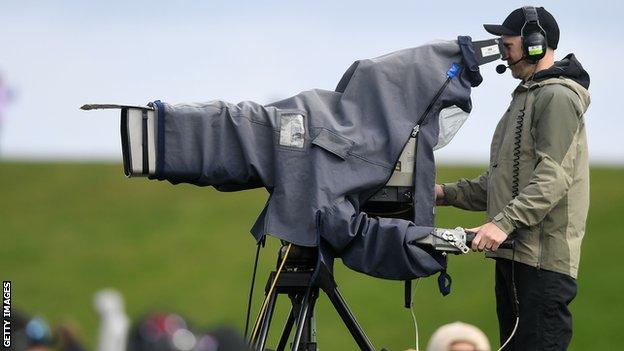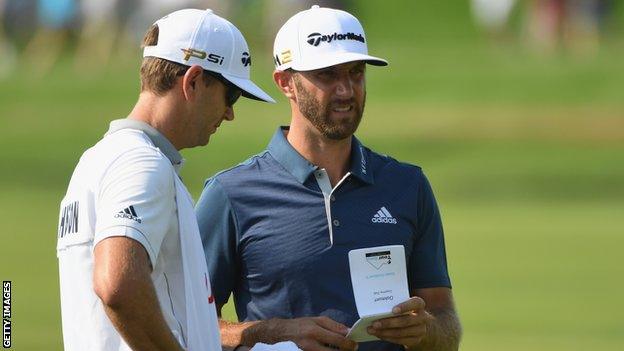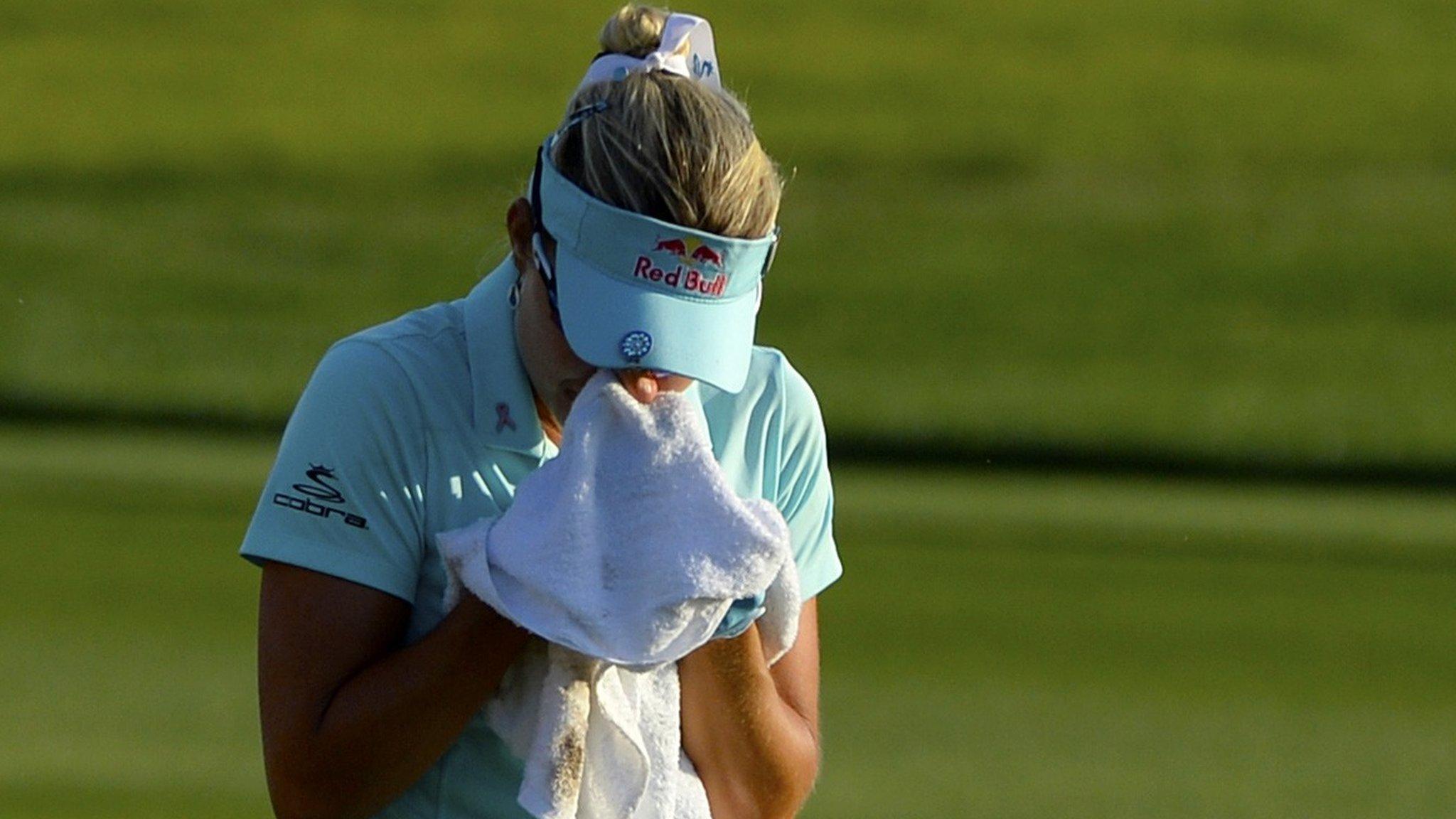Rule changes: 'It is right that TV viewers can no longer act as referees'
- Published
- comments
Watch how Lexi Thompson loses major after TV replay
Officials will be under increased pressure to spot penalties following the welcome decision to scrap viewer call-ins as a means of identifying rules breaches in televised golf events.
Any thought that controversies will disappear as a result of the changes, external announced by the R&A and United States Golf Association (USGA) should be banished.
Viewers will remain eagle-eyed. That's the nature of sports fans and particularly golf aficionados, who have influenced results throughout the television era by spotting player mistakes.
Somehow they found means to contact the authorities, prompting retrospective penalties such as the four strokes that were added to Lexi Thompson's scorecard at this year's ANA Inspiration in California.
On that occasion an emailer alerted referees to the fact that the American star had erroneously replaced her ball during the third round.
It came to a light a day later, but in time for her to be docked two strokes for playing a short putt from the wrong position.
Thompson was given a further two-shot penalty for signing for the wrong third-round score, and these sanctions effectively cost her a major title.
Under the rule changes just announced, this can no longer happen. Viewer interventions will be ignored and the penalty for unwittingly signing for the wrong scorecard in such circumstances has been scrapped.
It is a welcome move because golf was out of step with pretty much every other sport where spectators at home are powerless to influence events, even when they spot a blatant rules breach.
The Thompson incident highlighted a situation where a tournament was being played under a false scoreboard until her mistake had been highlighted - and that was a day late.
"In my case, I am thankful that no-one else will have to deal with an outcome such as mine in the future," Thompson said in response to the new changes.
But it should be remembered that it would be unjust for such errors to go unpunished. This is why the main tours of the men's and women's games have agreed to new protocols.

TV rules officials will be employed to spot breaches of the rules
One or more television rules officials will monitor coverage, looking to spot the kind of mistakes that used to be picked up by alert viewers.
In many quarters, these armchair officials were described as nothing more than interfering busy bodies, but the fact is their actions helped to ensure correct scoring.
Nevertheless it was a deeply unsatisfactory way to conduct professional sport. The rules should be administered by referees and by the golfers themselves.
The onus is also on them to ensure they and their playing partners proceed correctly. This is one of the unique characteristics of the game of golf that should be preserved.
But with millions of pounds and the integrity of the sport on the line pretty much every week, it is vital referees play an enhanced role.
It would have been quite wrong for Thompson to have escaped unpunished for giving herself an easier putt when she replaced her ball marginally closer to the hole.
She gained huge sympathy at the time but that came from how the penalty was imposed and for the two extra strokes she was given because she unwittingly signed for the wrong third-round score.
Now the ball is firmly in the court of the officials on the course and in TV trucks - where they can observe a multitude of feeds - at the game's biggest events.
"As technology has continued to evolve, it has allowed us to evolve how we operate as well," observed Thomas Pagel, the USGA's senior director of rules.
Finally, it seems the authorities are realising that the game cannot tolerate unnecessary rules controversies.

Dustin Johnson (right) was penalised after being judged to have moved his ball during the final round at the 2016 US Open
The USGA were at the heart of the fiasco surrounding a penalty imposed on Dustin Johnson during the final round of his 2016 US Open triumph.
During the controversy - farcically only resolved at the end of play - competitors and viewers were uncertain of the proper score.
While these latest rule changes do not alter how that incident would have played out, they do reduce the scope for scoring alterations late in the day and that should be applauded.
The fans will still watch with their eagle eyes and, no doubt, readily take to social media to highlight acts of wrongdoing as and when they see fit.
There is still scope for controversy and injustice to surface, but - from 1 January next year - only if the newly appointed television officials take their eye off the ball.
- Published3 April 2017
